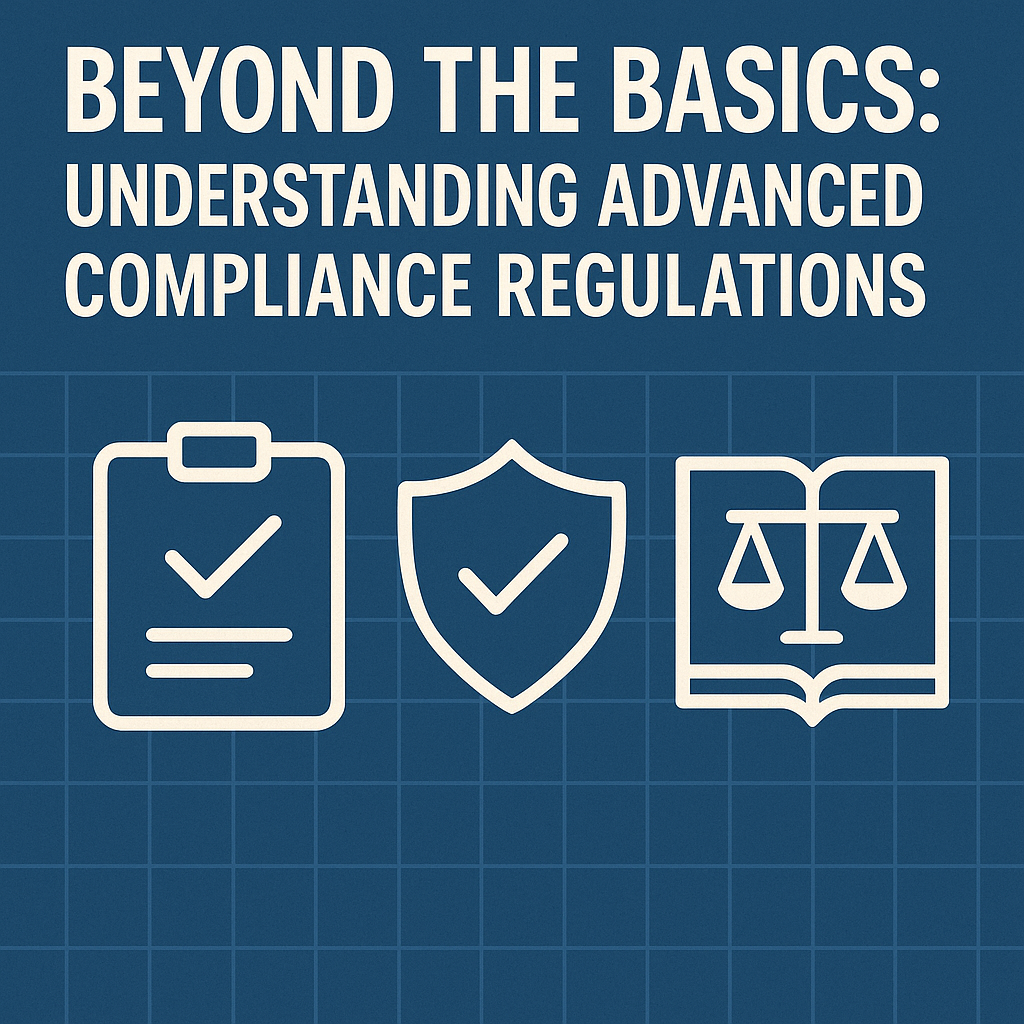
Introduction
In today’s rapidly evolving business landscape, understanding advanced compliance regulations is essential for organizations striving to maintain integrity and avoid substantial penalties. This article explores what advanced compliance entails, its significance, and how companies can navigate these complexities effectively.
What Are Advanced Compliance Regulations?
Advanced compliance regulations refer to sophisticated and often nuanced rules and standards that organizations must adhere to, particularly in industries such as finance, healthcare, and data privacy. These regulations go beyond basic requirements, focusing on the intricate aspects of legal adherence, ethical standards, and risk management.
Importance of Advanced Compliance Regulations
Risk Mitigation
Advanced compliance regulations help organizations identify potential risks and implement strategies to mitigate them. This proactive approach minimizes the likelihood of legal issues and financial loss.
Enhancing Reputation
Companies that prioritize compliance demonstrate accountability and ethical practices, which can enhance their reputation and foster trust among stakeholders.
Competitive Advantage
Businesses that excel in compliance can differentiate themselves in the market. A robust compliance framework can serve as a unique selling point to clients and partners.
Navigating Advanced Compliance: Key Strategies
Invest in Training
Ongoing training programs ensure that employees understand regulatory requirements and their responsibilities. Regular workshops and certifications can keep compliance culture strong within the organization.
Utilize Technology
Leveraging compliance software can automate processes, reduce human error, and provide real-time updates on regulatory changes. This technology can greatly improve efficiency.
Regular Audits
Conducting routine compliance audits helps organizations assess their adherence to regulations and identify areas for improvement. This practice promotes accountability and continuous improvement.
Related Searches
- Compliance Management Software
- Regulatory Compliance Training
- Risk Mitigation Strategies for Businesses
FAQ
What industries are most affected by advanced compliance regulations?
Industries such as finance, healthcare, and technology are particularly impacted due to stringent regulations governing their operations.
How can small businesses manage compliance effectively?
Small businesses can manage compliance by educating their staff, using affordable compliance tools, and consulting with compliance experts when necessary.
Are compliance regulations the same globally?
No, compliance regulations often vary significantly between countries and regions, necessitating tailored approaches for international businesses.
Interview with Compliance Expert
Q: What is the biggest challenge organizations face with advanced compliance?
A: One of the biggest challenges is keeping up with constantly changing regulations, especially in industries that are heavily regulated. Organizations must be adaptable and proactive in their compliance strategies.
Q: How can organizations build a culture of compliance?
A: Building a culture of compliance starts with leadership. Executives should model compliance behaviors and embed compliance into the organizational values and everyday operations.
Conclusion
Understanding advanced compliance regulations is no longer optional but a necessity in the modern business environment. By investing in training, utilizing technology, and conducting regular audits, organizations can navigate these complexities with confidence. As compliance continues to evolve, staying informed and proactive will be key to maintaining an effective compliance framework.
#Basics #Understanding #Advanced #Compliance #Regulations

